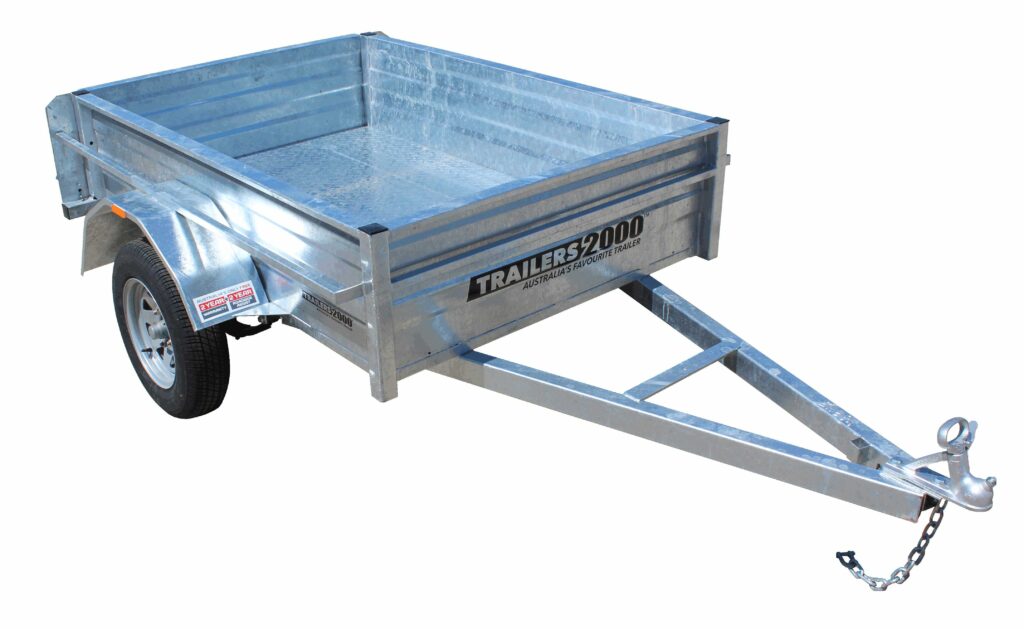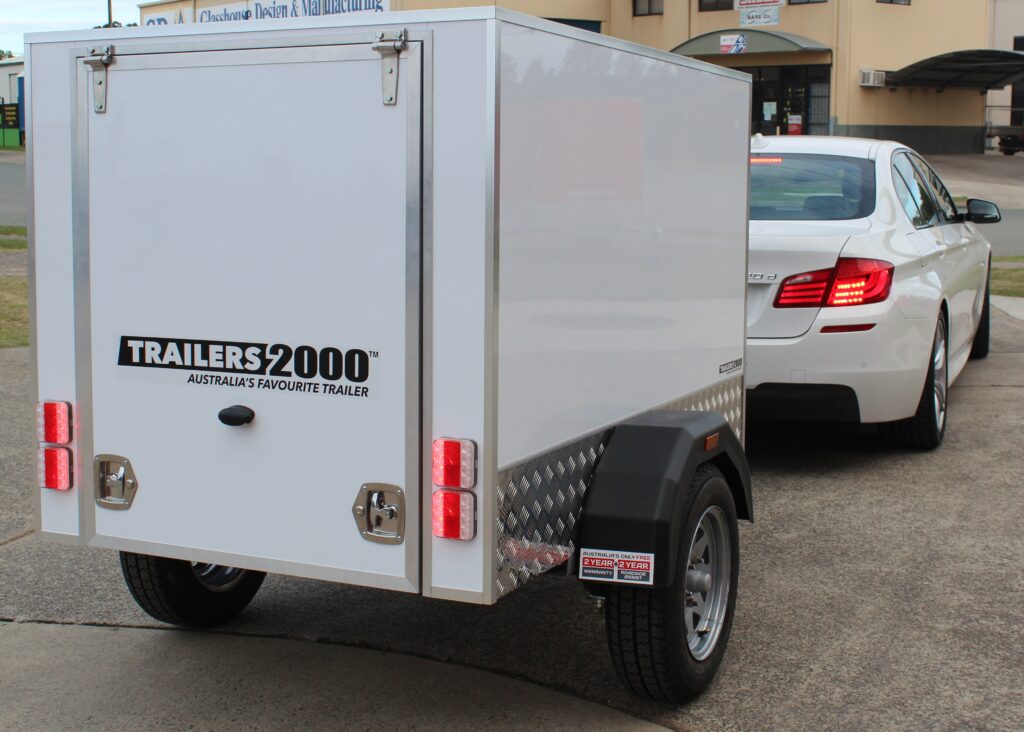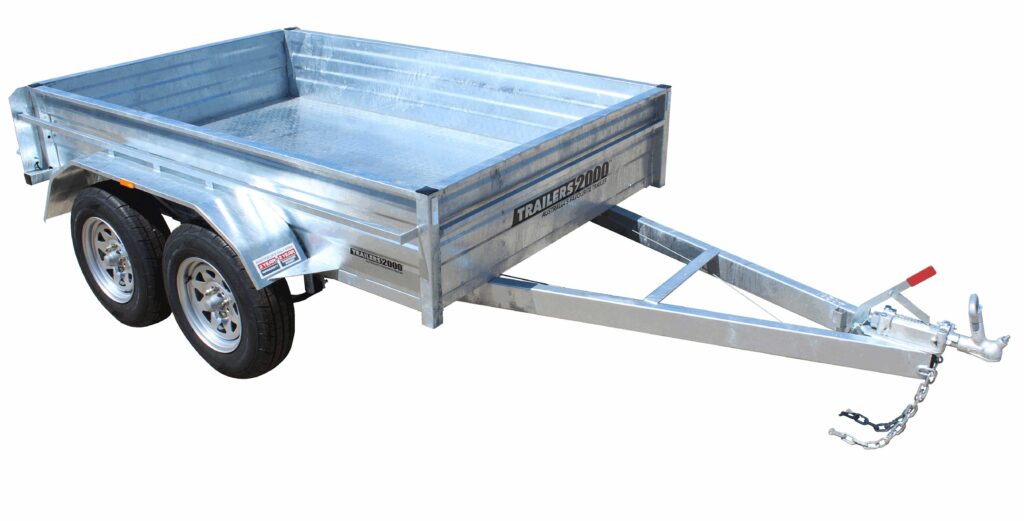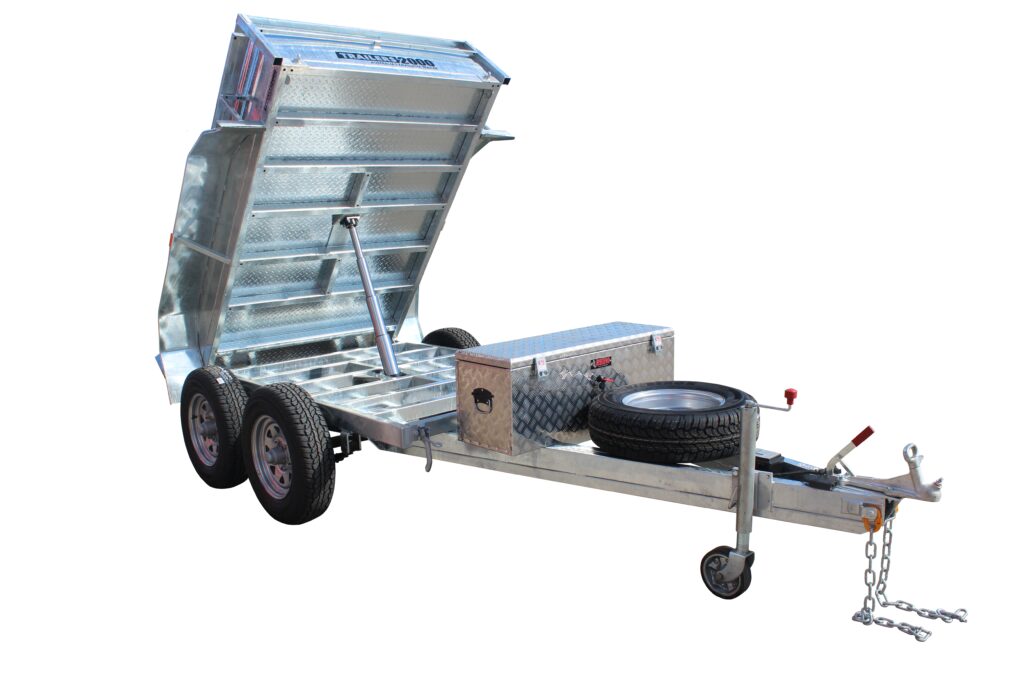Purchasing a trailer is non-negotiable if you tend to transport things regularly. Although the initial buy might dent your finances a little, it’s an investment bound to yield dividends in the long run.
Numerous trailer variations exist in the market — custom trailers, flat deck trailers, universal trailers, and so on. Thus, it’s no surprise that these trailers adopt distinct shapes and sizes. While this might seem a tad straightforward on the surface, first-time trailer buyers could get overwhelmed.
If you’re amongst this set, don’t fret. This guide will examine common trailer sizes featured in Australia alongside their uses to aid your purchase decision. Besides getting you in sync with these distinctions, we’ll take a peek at trailer towing safety.
Ready to know more? Let’s get GOING!
Common Trailer Sizes
The most common trailer sizes you’ll find at Trailer 2000 are:
- Single-Axle 6×4 & 7×4 Trailer
If you’re looking for an economical way to add some load to your car, you can by using a 6×4 or 7×4 trailer. These trailers will come in handy for family camping trips. The regular 6×4 and 7×4 trailers from Trailer 2000 are compatible with extra accessories like cages and cage covers to secure your goods while in transit.
You’ll also find 6×4 trailer models from Trailer 2000 that are Universal Trailers bound to come in handy to transport lawnmowers, tanks, equipment, and motorcycles.

- Single-Axle 7×5 Trailer
Another common trailer size is the single-axle 7×5 trailer. Suitable for DIY (Do It Yourself) individuals, these trailers aren’t the biggest but will seamlessly transport small loads and equipment from one place to another.
The luggage trailers available at Trailers 2000 are the perfect example of 7×5 trailers. Enclosed with a glossy-finished box, these trailers adopt a galvanised frame that reiterates durability all around. Customers can consider add-ons like side doors and heavy-duty hinges suitable for transporting equipment in adverse weather conditions.

- Tandem 8×5 Trailer
If you’d like to move extra weight around, tandem 8×5 trailers are your best bet and will handle decently-sized goods with aplomb. This popular trailer variation is perfect for those in the construction industry as it can seamlessly haul equipment to and from building sites.

You’ll encounter several box trailers at Trailers 2000. However, one notable alternative that’ll suit your “heavy load” moving needs is hydraulic tipping trailers. These tandem trailers have an ATM value of 2000kg (you’ll also find variations with higher ATM amounts). Add-ons can include deep sides, electric brakes, and rocker roller suspension.

NOTE: The trailer sizes featured are the most common from Trailers 2000. Although multiple variations exist on each, you can browse our extensive catalogue to find alternatives that suit your needs.
Vital Safety Considerations to Note
For some, purchasing a trailer is all they need to transport goods from one place to another. However, you need to conform to several safety practices to ensure the trailers’ longevity and, most importantly, your safety whilst driving.
When the trailer and vehicle are in sync, weight-wise, transporting equipment would be smooth sailing and less hazardous.
Choosing a Suitable Vehicle
To practice safe towing, your vehicle should be able to carry the trailer’s Aggregate Trailer Mass (ATM) easily. Here, you can do one of two things: purchase a trailer that matches your car or buy a vehicle curated for towing a particular trailer variation.
Although modern cars might seem to have all the bling, most are incapable of towing very heavy loads and are better suited for day-to-day driving. If your vehicle is tow-worthy, it’s important to check the maximum weight the car can tow at a particular time.
For example, the average ute can tow a 10×6 trailer and a 2000kg car carrier trailer without difficulties. Also, note that a trailer with 3000kg ATM is deemed to be oversized and will require electric brakes. Nonetheless, it’ll be best to conduct due diligence to ensure you don’t exceed the capped weight limit attached to your vehicle.
Understanding Australian Towing Laws
Whilst certain legal caveats might differ across Australian states, towing regulations are pretty much constant. Here are some notable mentions:
- The concept “trailer” can be used to define all towed trailers, including enclosed trailers, custom trailers, heavy duty trailers, and so on
- The car and trailer must be registered with the appropriate authorities
- The trailer and vehicle must be in road-worthy conditions at all times
- Rear number plates must be fitted onto trailers
- Couplings and towbars shouldn’t obscure the trailers number plates or tail lights
- Individuals mustn’t tow two trailers simultaneously
Towing Speed Limits in Australia
Another aspect to consider while driving with a trailer in Australia is “speed limits.” While the speed limit in Western Australia is pegged at 100km per hour (the regular speed limit is 110km/h), the speed limits in other states, Queensland inclusive, are in sync with their respective signed limits.
Why are 6×4 Trailers Popular?
Many drivers with towing needs usually opt for 6×4 trailers due to their affordability and durability. This trailer variation is also preferred by less experienced trailer drivers who want to manoeuvre their way through traffic safely.
We’ve looked at the different common trailer sizes available and some safety measures you should note while towing trailers in Australia. Regardless of what trailer type takes your interest, you’re certain of making a high-quality purchase from Trailers 2000. From trailers with cages to enclosed trailers and box trailers, we’ve got fully-galvanised trailers bound to stand time’s test.
Our trailers are “built tough and built to last.” What’s not to love? For the best trailers, Contact a Trailers 2000 expert, or browse our site to select a trailer that suits your need TODAY!
